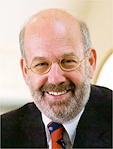There are precious few things that unite adults today, topics that can serve as table talk for us all. But a particularly joyful one concerns the advertising campaigns of our youth. We remember soap ads, candy ads, toothpaste ads, toy ads, and, of course, breakfast food ads.
The breakfast ads were particularly delightful because they were directed at us kids, and they spoke to us in ways our teachers and pastors did not. These ads came on during kid-show time. They took us and our tastes seriously. It was part of growing up, and I’ve never known anyone to remember those days in any way but fondly.
But thanks to a conspiracy of health Nazis (this is a particularly apt phrase since the Nazis were pioneers in the art of badgering people over health issues), public interest law firms, and government officials, the days of kid-directed advertising for many products is coming to an end. To those who see conspiracy in every commercial, ads directed toward kids are seen as exploitative and evil, child abuse at the hands of the merchant class.
And you thought they were only trying to sell you a delicious breakfast!
Kellogg’s has announced that it is caving in to pressure and that the company will end its kid ads for all products that don’t meet special nutrition guidelines. Even more egregiously, it will stop branding toys and licensing characters for spinoffs. No more creating cult figures out of Snap, Crackle, ‘n Pop and the like!
So instead of Tony the Tiger, kids can now look forward to ads for muesli and dried bananas, touted by some tree hugger in a bike helmet.
Let me tell you: kids aren’t stupid. These days, they are particularly sophisticated about recognizing ads for bogus health food as versus what they really want.
Such changes are invariably described as voluntary, even by the company that wants to be seen as health conscious. And if they truly were voluntary, who could object? If the market has changed, companies must change with it. That’s the specialty of business enterprise.
But the fact is that most of these shifts are not voluntary. They are forced by the government, albeit through the intermediary of the courts and special interest groups who use the courts to shape society to their liking.
What happened was that Kellogg and Viacom were threatened with lawsuits by the Center for Science in the Public Interest and a ghastly outfit called the Campaign for Commercial-Free Childhood. Essentially, the company didn’t want to face a continued PR-meltdown, massive attorney fees, and a possible court loss in light of ridiculous statutes and precedents, so it caved.
This is only the latest sell-out to government. McDonald’s, General Mills, and Kraft have all agreed to adhere to some sort of federally approved health standard in their advertising.
So what else does this Childhood Campaign group want? According to their website, they "support the rights of children to grow up — and the rights of parents to raise them — without being undermined by rampant consumerism." But what is that? Well, it turns out to mean essentially any capitalist act.
For example, the group is now railing against Coca-Cola because of a special promotion that will put codes for free ring tones and other neat things inside Sprite bottle tops. So you buy a Sprite and text the code from your cell phone and get something fun. Sounds great? No, no, no: this is thoroughly evil!
You see, this is only one of a million evil acts by "egregious corporate offenders," according to their amazing new moral code, which says that anything marketed to children is an offense against all decency. And children, in this case, are not 3—5-year-olds, but teens and even college kids.
 When are you old enough to handle a marketing campaign? When and where is it truly okay to say to someone: you will like my product? We can’t but have a deep suspicion that it is not the corporate world that is using kids, but rather these groups that are putting children up front as archetypes in an overall anti-capitalist campaign against any and all of commercial society. In other words, precisely who is exploiting kids here?
When are you old enough to handle a marketing campaign? When and where is it truly okay to say to someone: you will like my product? We can’t but have a deep suspicion that it is not the corporate world that is using kids, but rather these groups that are putting children up front as archetypes in an overall anti-capitalist campaign against any and all of commercial society. In other words, precisely who is exploiting kids here?
After all, the only true way to protect kids against ads is to ban them altogether. Our grocery stores should look like they did in the old Soviet Union, with brown boxes called names like "soap" and "cereal." And as every good socialist knows, the best way to get rid of advertising is to get rid of competition and the need to market anything in the first place.
 What a drab and dreary world it would be, not only for kids but for adults too! Who would conjure up such a vision and imagine it to be a good society? Well, the group credits its founding to a conference of academics and policy officials held at Harvard — the would-be central planners of our age.
What a drab and dreary world it would be, not only for kids but for adults too! Who would conjure up such a vision and imagine it to be a good society? Well, the group credits its founding to a conference of academics and policy officials held at Harvard — the would-be central planners of our age.





